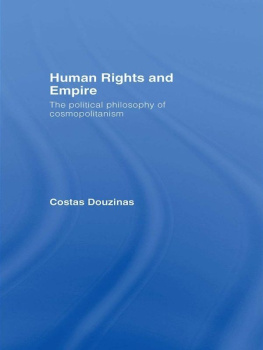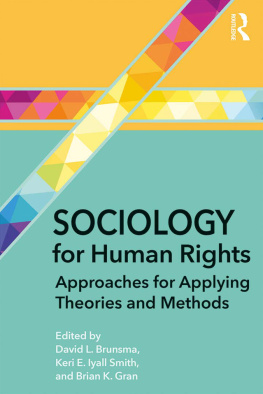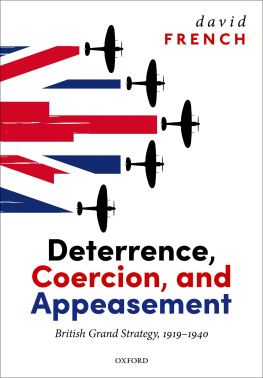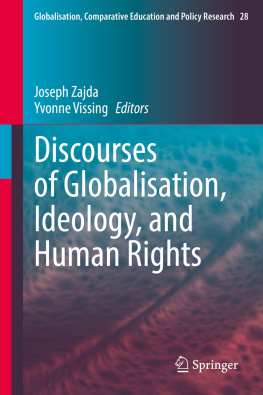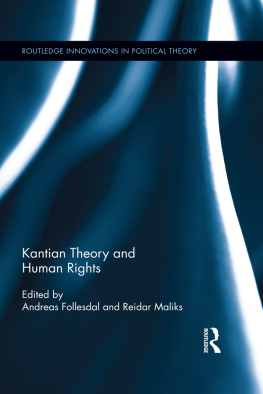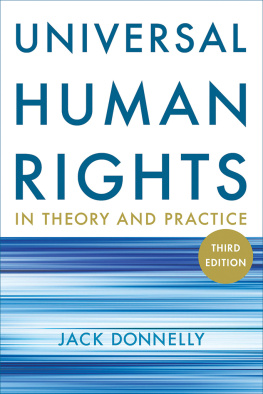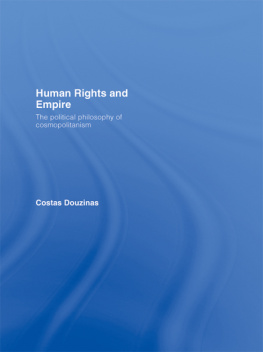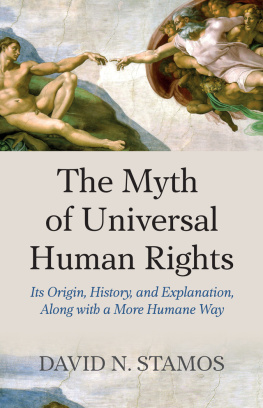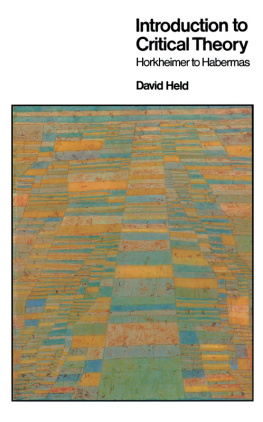David McGrogan - Critical theory and human rights: From compassion to coercion
Here you can read online David McGrogan - Critical theory and human rights: From compassion to coercion full text of the book (entire story) in english for free. Download pdf and epub, get meaning, cover and reviews about this ebook. year: 2021, publisher: Manchester University Press, genre: Politics. Description of the work, (preface) as well as reviews are available. Best literature library LitArk.com created for fans of good reading and offers a wide selection of genres:
Romance novel
Science fiction
Adventure
Detective
Science
History
Home and family
Prose
Art
Politics
Computer
Non-fiction
Religion
Business
Children
Humor
Choose a favorite category and find really read worthwhile books. Enjoy immersion in the world of imagination, feel the emotions of the characters or learn something new for yourself, make an fascinating discovery.

- Book:Critical theory and human rights: From compassion to coercion
- Author:
- Publisher:Manchester University Press
- Genre:
- Year:2021
- Rating:3 / 5
- Favourites:Add to favourites
- Your mark:
- 60
- 1
- 2
- 3
- 4
- 5
Critical theory and human rights: From compassion to coercion: summary, description and annotation
We offer to read an annotation, description, summary or preface (depends on what the author of the book "Critical theory and human rights: From compassion to coercion" wrote himself). If you haven't found the necessary information about the book — write in the comments, we will try to find it.
David McGrogan: author's other books
Who wrote Critical theory and human rights: From compassion to coercion? Find out the surname, the name of the author of the book and a list of all author's works by series.
Critical theory and human rights: From compassion to coercion — read online for free the complete book (whole text) full work
Below is the text of the book, divided by pages. System saving the place of the last page read, allows you to conveniently read the book "Critical theory and human rights: From compassion to coercion" online for free, without having to search again every time where you left off. Put a bookmark, and you can go to the page where you finished reading at any time.
Font size:
Interval:
Bookmark:
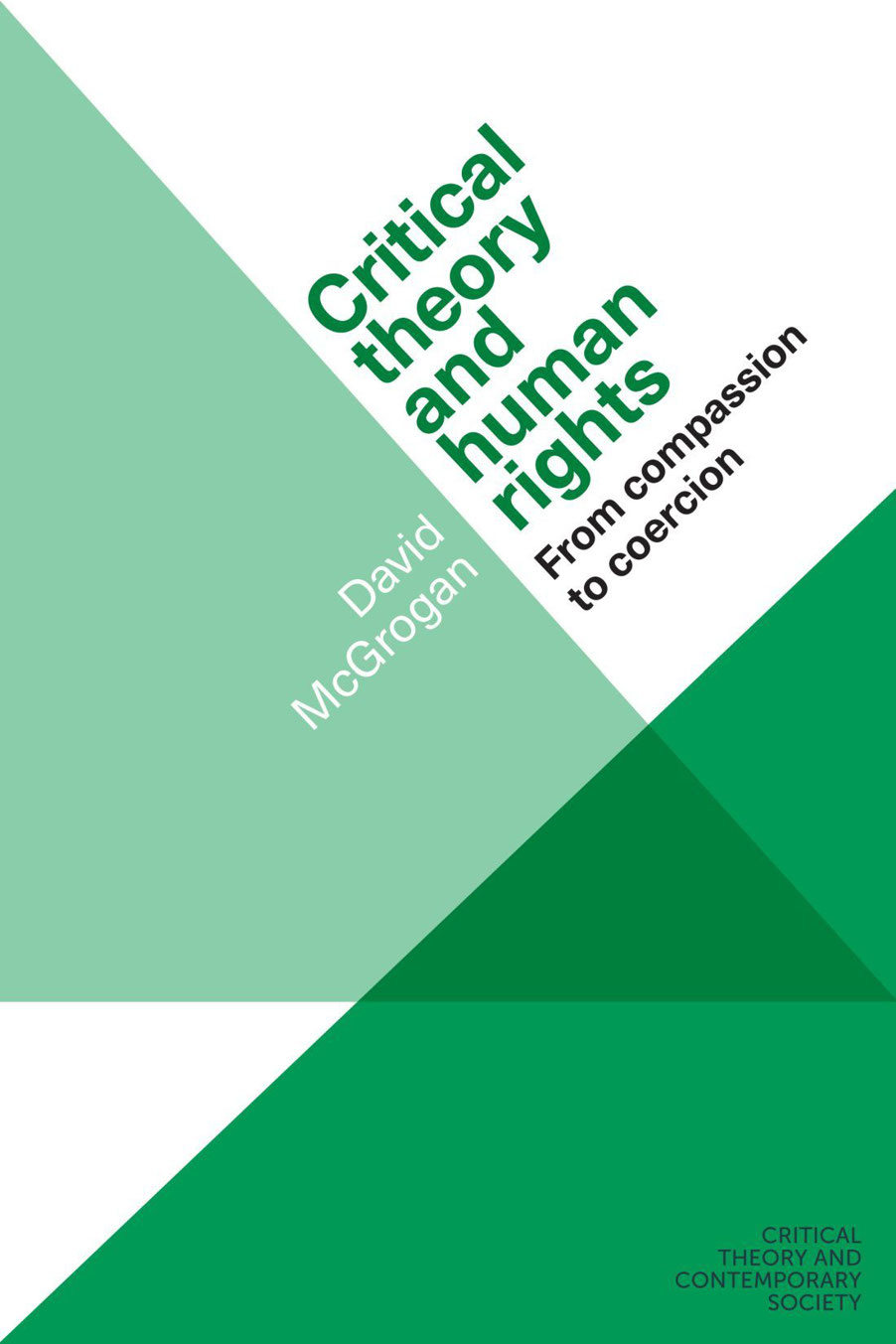
Critical theory and human rights

Critical theory and contemporary society
Series editors:
David M. Berry, Professor of Digital Humanities, University of Sussex
Darrow Schecter, Professor of Critical Theory and Modern European History, University of Sussex
The Critical Theory and Contemporary Society series aims to demonstrate the ongoing relevance of multi-disciplinary research in explaining the causes of pressing social problems today and in indicating the possible paths towards a libertarian transformation of twenty-first century society. It builds upon some of the main ideas of first generation critical theorists, including Horkheimer, Adorno, Benjamin, Marcuse, and Fromm, but it does not aim to provide systematic guides to the work of those thinkers. Rather, each volume focuses on ways of thinking about the political dimensions of a particular topic, which include political economy, law, popular culture, globalisation, feminism, theology, and terrorism. Authors are encouraged to build on the legacy of first-generation Frankfurt School theorists and their influences (Kant, Hegel, Kierkegaard, Marx, Nietzsche, Weber, and Freud) in a manner that is distinct from, though not necessarily hostile to, the broad lines of second-generation critical theory. The series sets ambitious theoretical standards, aiming to engage and challenge an interdisciplinary readership of students and scholars across political theory, philosophy, sociology, history, media studies, and literary studies.
Previously published by Bloomsbury
Critical theory in the twenty-first century Darrow Schecter
Critical theory and the critique of political economy Werner Bonefeld
Critical theory and contemporary Europe William Outhwaite
Critical theory of legal revolutions Hauke Brunkhorst
Critical theory of libertarian socialism Charles Masquelier
Critical theory and film Fabio Vighi
Critical theory and the digital David Berry
Critical theory and disability Teodor Mladenov
Critical theory and the crisis of contemporary capitalism Heiko Feldner and Fabio Vighi
Previously published by Manchester University Press
Critical theory and demagogic populism Paul K. Jones
Critical theory and epistemology Anastasia Marinopoulou
Critical theory and feeling Simon Mussell
Critical theory and legal autopoiesis Gunther Teubner
Critical theory and sociological theory Darrow Schecter
Critical theory and human rights
From compassion to coercion
David McGrogan
MANCHESTER UNIVERSITY PRESS
Copyright David McGrogan 2021
The right of David McGrogan to be identified as the author of this work has been asserted by them in accordance with the Copyright, Designs and Patents Act 1988.
Published by Manchester University Press
Altrincham Street, Manchester M1 7JA
www.manchesteruniversitypress.co.uk
British Library Cataloguing-in-Publication Data
A catalogue record for this book is available from the British Library
ISBN 978 1 5261 3182 9 hardback
First published 2021
The publisher has no responsibility for the persistence or accuracy of URLs for any external or third-party internet websites referred to in this book, and does not guarantee that any content on such websites is, or will remain, accurate or appropriate.
Typeset by
Deanta Global Publishing Services
For my girls, M and E, and with thanks to Al Di Meola, Zoltan Kocsis, Ivo Pogorelich, and Glenn Gould for sanity-saving musical accompaniment.
This book would not have come into being were it not for the kindness of the series editors, Darrow Schecter and David Berry. I owe them my thanks for providing the opportunity to write it. The impetus to begin writing would also not have come about save for a period as a Research Fellow at Sussex Law School, and I would like to thank Alex Conte, Elizabeth Craig, and Stephanie Berry for making that possible.
Eric Heinze, Conall Mallory, Adam Ramshaw, Richard Mullender, and Eleni Frantziou all read parts of this book during its formation, and provided invaluable help in doing so. William Ralston, Birju Kotecha, Siobhan McConnell, Jaqueline Smart, James Gray, Helen Rutherford, and other colleagues at Northumbria Law School were perhaps of more hindrance than help in providing relentless friendly distraction, but the process of writing the book would not have been the same without them.
Any idiosyncrasy and eccentricity in the books contents are attributable to me alone as are any errors.
David McGrogan, 2020
| CEDAW | Committee on the Elimination of Discrimination Against Women/Convention on the Elimination of All Forms of Discrimination Against Women |
| CERD | Committee on the Elimination of Racial Discrimination/Convention on the Elimination of All Forms of Racial Discrimination |
| CESCR | Committee on Economic, Social and Cultural Rights |
| CRPD | Convention on the Rights of Persons with Disabilities |
| CRC | Childrens Rights Committee/Convention on the Rights of the Child |
| ECOSOC | United Nations Economic and Social Council |
| EHRC | Equality and Human Rights Commission [UK] |
| FAO | Food and Agriculture Organization |
| FCO | Foreign & Commonwealth Office [UK] |
| HRC | Human Rights Committee |
| ICCPR | International Covenant on Civil and Political Rights |
| ICESCR | International Covenant on Economic, Social and Cultural Rights |
| IMF | International Monetary Fund |
| JCHR | Parliamentary Joint Committee on Human Rights [UK] |
| NHRI | National Human Rights Institution |
| OHCHR | Office of the United Nations High Commissioner for Human Rights |
| SHRC | Scottish Human Rights Commission |
| UDHR | Universal Declaration of Human Rights |
| UNESCO | United Nations Educational, Scientific and Cultural Organization |
| UNICEF | United Nations International Childrens Fund |
| WHO | World Health Organization |
Lionel Trilling once called for a moral realism to alert those concerned with social injustice that there was a danger in the moral life that to choose to act did not settle all moral problems, but simply displaced them. The moral passions, as he called them, were wilful and imperious and impatient and their tendency was not to liberate, but to restrict. Some paradox in our natures leads us, as he put it, when once we have made our fellow men the objects of our enlightened interest, to go on and make them the objects of our pity, then of our wisdom, ultimately of our coercion.
The subject matter of this book is how that paradox finds expression in modern international human rights law and practice. The core of its argument is that the chief concern of the human rights movement has become the deployment of political and economic power through the State, international organisation, and private enterprise in order to improve human well-being. This makes its character increasingly managerial, concerned above all with the technical and programmatic implementation of policies designed to achieve that broad aim. It is a project which is motivated by compassion, or pity, but which gives rise to a vision of an all-knowing and all-encompassing form of governance whose final consequences, if fully realised, would be antithetical to individual freedom properly understood. The way in which the international human rights system has developed, in other words, traces precisely the path which Trilling described. The end result of this is an alienating discourse, about which ordinary rights-holders are, at best, unenthusiastic: a set of reforms, as Orwell once described a movement of a not altogether dissimilar kind, which we, the clever ones, are going to impose upon them, the Lower Orders. This book argues that it should hardly be surprising if this has failed to capture the popular imagination.
Next pageFont size:
Interval:
Bookmark:
Similar books «Critical theory and human rights: From compassion to coercion»
Look at similar books to Critical theory and human rights: From compassion to coercion. We have selected literature similar in name and meaning in the hope of providing readers with more options to find new, interesting, not yet read works.
Discussion, reviews of the book Critical theory and human rights: From compassion to coercion and just readers' own opinions. Leave your comments, write what you think about the work, its meaning or the main characters. Specify what exactly you liked and what you didn't like, and why you think so.

